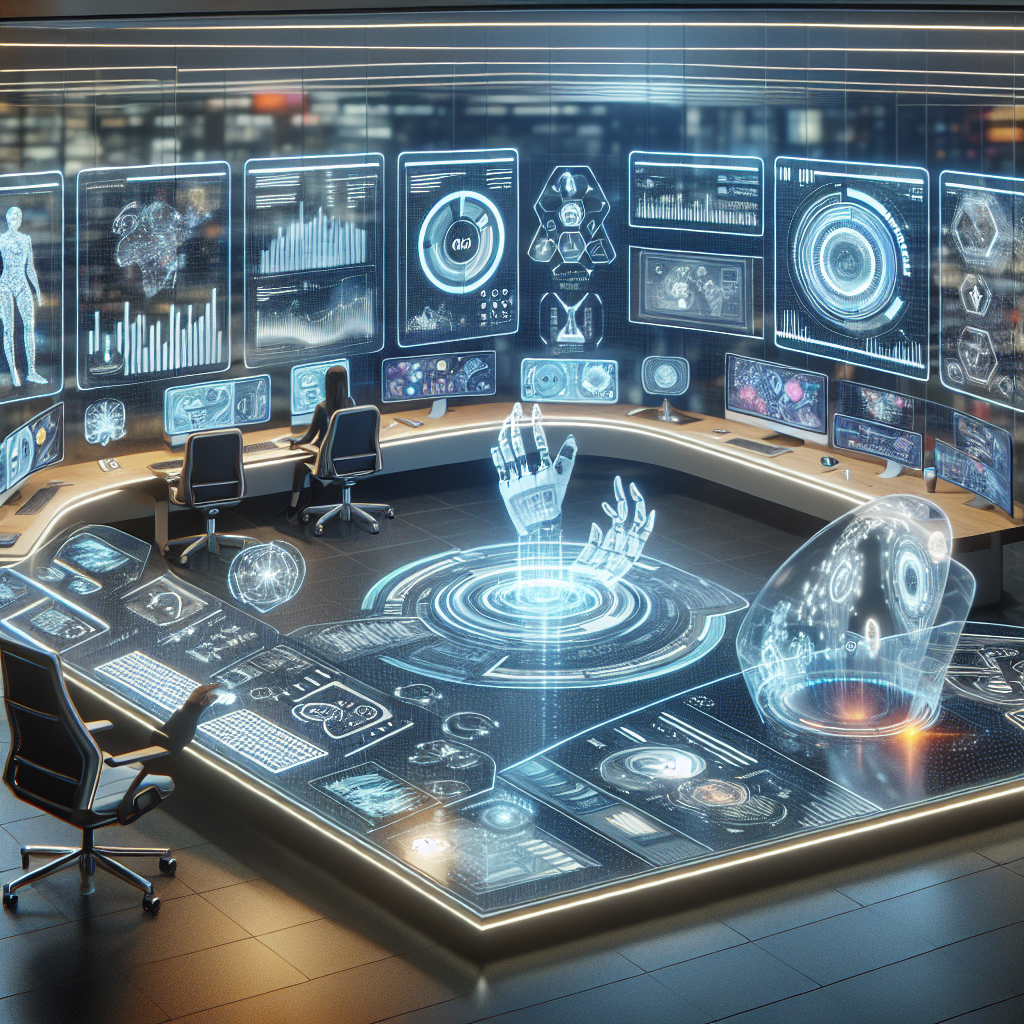Artificial General Intelligence (AGI) is a technology that has the potential to revolutionize industries and change the way we work. AGI refers to a type of artificial intelligence that is capable of performing any intellectual task that a human can do. Unlike narrow AI, which is designed for specific tasks, AGI has the ability to learn, reason, and solve problems across a wide range of domains.
As AGI continues to advance, its impact on industries is becoming increasingly profound. From healthcare to finance, from transportation to manufacturing, AGI is reshaping the way businesses operate and creating new opportunities for innovation and growth. In this article, we will explore how AGI is revolutionizing industries and changing the way we work.
Healthcare
One of the most promising applications of AGI is in healthcare. AGI has the potential to revolutionize the way medical diagnosis is done, by analyzing vast amounts of patient data and identifying patterns and correlations that may not be immediately apparent to human doctors. This can lead to more accurate diagnoses, earlier detection of diseases, and personalized treatment plans tailored to each patient’s unique needs.
AGI can also improve the efficiency of healthcare systems by optimizing resource allocation, streamlining administrative tasks, and reducing costs. For example, AGI-powered chatbots can help patients schedule appointments, answer medical questions, and provide personalized health advice, freeing up human healthcare providers to focus on more complex tasks.
Finance
In the financial industry, AGI is being used to analyze market trends, predict stock prices, and automate trading strategies. By processing vast amounts of financial data in real-time, AGI-powered algorithms can make faster and more accurate investment decisions than human traders, leading to higher profits and reduced risks.
AGI is also being used to detect fraud, prevent money laundering, and improve risk management in banking and insurance. By analyzing patterns in transaction data and identifying suspicious activities, AGI can help financial institutions identify and mitigate risks before they escalate.
Transportation
The transportation industry is another sector that is being transformed by AGI. Self-driving cars, trucks, and drones powered by AGI are becoming increasingly common, promising to revolutionize the way goods are transported and people travel. By analyzing sensor data, mapping routes, and making real-time decisions, AGI-powered vehicles can navigate complex environments safely and efficiently, reducing accidents and congestion on the roads.
AGI is also being used to optimize logistics and supply chain management, by predicting demand, optimizing routes, and managing inventory more effectively. This can lead to cost savings, faster delivery times, and improved customer satisfaction.
Manufacturing
In the manufacturing sector, AGI is revolutionizing the way products are designed, produced, and quality-controlled. AGI-powered robots are being used to automate repetitive tasks, such as assembly and inspection, leading to increased productivity, lower costs, and improved product quality.
AGI is also being used to optimize manufacturing processes, by analyzing data from sensors and machines to identify bottlenecks, improve efficiency, and reduce waste. By making real-time adjustments to production schedules and resource allocation, AGI can help manufacturers respond quickly to changing market conditions and customer demands.
In conclusion, AGI is revolutionizing industries and changing the way we work by enabling machines to perform tasks that were once the exclusive domain of humans. From healthcare to finance, from transportation to manufacturing, AGI is reshaping the way businesses operate and creating new opportunities for innovation and growth. As AGI continues to advance, its impact on industries will only become more profound, leading to a future where intelligent machines work alongside humans to create a more efficient, productive, and sustainable world.
FAQs
Q: What is the difference between AGI and narrow AI?
A: AGI refers to a type of artificial intelligence that is capable of performing any intellectual task that a human can do, while narrow AI is designed for specific tasks. AGI has the ability to learn, reason, and solve problems across a wide range of domains, whereas narrow AI is limited to performing predefined tasks.
Q: How is AGI being developed?
A: AGI is being developed through a combination of research in machine learning, cognitive science, and neuroscience. Researchers are working on developing algorithms and models that can mimic human intelligence, by analyzing data, learning from experience, and making decisions autonomously.
Q: What are the ethical implications of AGI?
A: The development of AGI raises a number of ethical concerns, such as the potential impact on jobs, privacy, and security. There are also concerns about the risks of AGI surpassing human intelligence and the potential for misuse or abuse of the technology. It is important for researchers, policymakers, and industry leaders to address these ethical issues and ensure that AGI is developed and deployed responsibly.
Q: How can businesses benefit from AGI?
A: Businesses can benefit from AGI by leveraging its capabilities to improve efficiency, reduce costs, and drive innovation. AGI can help businesses automate repetitive tasks, analyze data to make better decisions, and optimize processes to increase productivity. By embracing AGI, businesses can gain a competitive edge and position themselves for success in the digital age.

